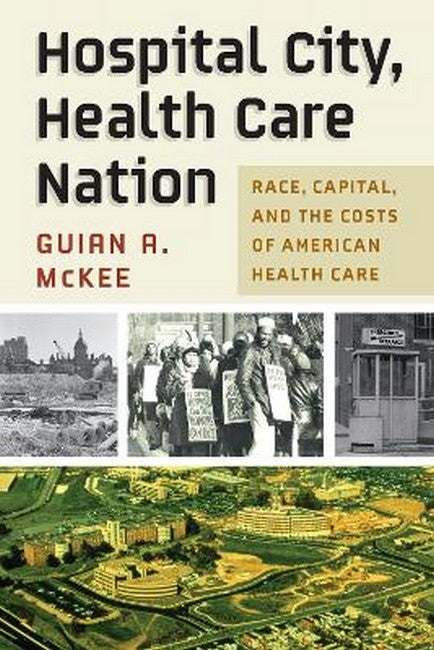Guian A. McKee is Associate Professor of Presidential Studies, Miller Center of Public Affairs, University of Virginia, and author of The Problem of Jobs: Liberalism, Race, and Deindustrialization in Philadelphia.
Request Academic Copy
Please copy the ISBN for submitting review copy form
Description
"McKee provides many important services in Hospital City, Health Care Nation. The most important is delivering an exquisite accumulation of detail that explains not only how the swallowing-up of small hospitals like CHWC has become inevitable, but also why it matters." (Washington Monthly) "Guian McKee's encyclopedic analysis of the range of special interests that would be harmed by health care cost reduction calls for antacid. Hospital City, Health Care Nation shows us why reformers have been unable to overcome powerful hospital and other healthcare lobbyists to enact meaningful system-wide reforms...[A]n exceptionally thorough treatise on the history and current state of dissonance in U.S. health care." (New York Journal of Books) "McKee's study of Johns Hopkins provides a fantastic look at the impact of its expansion and its part in the larger conversation of healthcare and the community. Topics of racial disparity and labor rights further the responsibility of this growth and explain the everyday importance of medicine in society." (Register of the Kentucky Historical Society) "Highly recommended...[T]his panoramic and carefully structured political and socioeconomic study investigates and analyzes the complex dynamics of health care reform that arose in a racially and economically segregated metropolis across the last five tumultuous decades of the 20th century...McKee takes care to name each one of the multitude of individuals depicted-local, state, and national-along with their varying roles and agendas, making what might have been a ponderous academic work a meticulously researched, clearly written, and highly accessible narrative." (Choice) "Hospital City, Health Care Nation deftly connects two tragic and persistent crises: that of the modern American city and that of the American health care system. In this timely and important account, we see the profound inequities and inefficiencies of our patchwork public-private health care system unfold at ascending scales, from Baltimore's neighborhoods to City Hall, to the Maryland statehouse, to the halls of Congress. The consequence, as Guian A. McKee underscores, is not just the notorious combination of steep costs and shallow security in American health care, but the persistent racial inequity of a health system shaped by residential segregation, occupational segregation, market deference, and thin public commitments." (Colin Gordon, University of Iowa) "In Hospital City, Health Care Nation, Guian A. McKee fuses three stories that have inextricably shaped each other: the inequities of the metropolis, the incursion of the market into ever more sectors of life, and the metastasizing of health care into an ever growing and ever expensive chunk of the American political economy. A must read for scholars, policymakers, and activists wrestling with the health care system's mounting contradictions." (Merlin Chowkwanyun, Columbia University) "McKee brilliantly argues that hospitals in the United States have shaped not just health care, but the structure of the postwar city. Hospitals' increasing access to capital financing and government subsidies led to unchecked growth, which created jobs for city residents but also destroyed housing and sent health care costs soaring. In showing how medical center expansion transformed economies and neighborhoods, Hospital City, Health Care Nation is an essential text for understanding the role of the urban health care sector in creating and maintaining structural inequality." (Beatrix Hoffman, Northern Illinois University)

